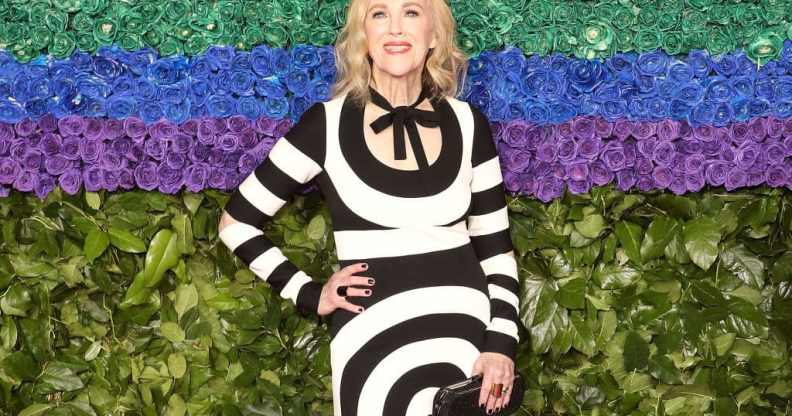Schitt’s Creek icon Catherine O’Hara told she was ‘pretty’ in a way that ‘anybody can have you’

Catherine O’Hara. (Taylor Hill/FilmMagic)
Schitt’s Creek star Catherine O’Hara was once told that she was “pretty” in a way that “anybody” could have her.
The acting legend experienced huge popularity in the ’80s and ’90s with film roles in comedies like Beetlejuice and Home Alone – but she was rarely considered to play a romantic lead.
When asked by The Sunday Times if there was ever a hope that she would take on romantic roles, Catherine O’Hara said: “If somebody was thinking of me that way, they didn’t tell me.”
She went on to recount an awkward lunch she had with a writer-director, who was considering her for a romantic lead in his film.
“He said to me: ‘You’re great! I’m looking for your kind of woman. You know – somebody who’s pretty enough, but anybody can have you.'”
O’Hara replied: “Why, thank you so much!”
“I mean, I didn’t get mad or anything,” she explained. “That was just kind of, ‘Oh! Oh… OK.’ Either I wasn’t pretty enough, or he knew nobody could have me. I didn’t get the role.”
Catherine O’Hara won the hearts of LGBT+ people on Schitt’s Creek
O’Hara already had a long and distinguished acting career behind her when she joined Schitt’s Creek as Rose family matriarch Moira Rose in 2015.
The series, created by Dan and Eugene Levy, told the story of the wildly wealthy Rose family as they lose their fortune and move to a small, rural town.
Schitt’s Creek had modest success until it arrived on Netflix. It quickly became a breakout hit before the show concluded with its sixth season last year.
O’Hara won a slew of awards for her iconic performance as Moira Rose, including a Golden Globe and an Emmy, while the series had a record clean sweep at the Emmys in September 2020.
Schitt’s Creek has won praise for its depiction of the relationship between David Rose (Dan Levy) and Patrick (Noah Reid). Following the show’s finale, Levy revealed that countless parents wrote thanking him for helping them to understand their child’s identity.
“I am really proud of the work that we did, and I am humbled by the change that we seem to have affected in people’s lives and people’s homes,” he said.

